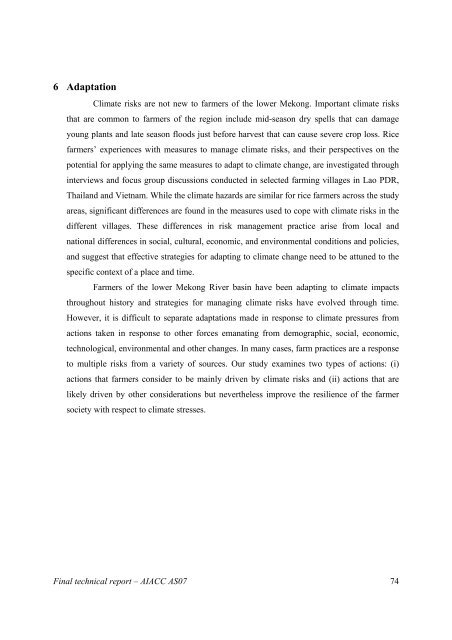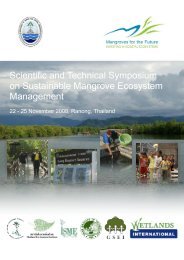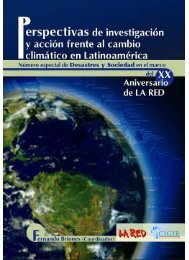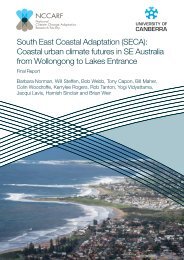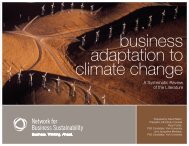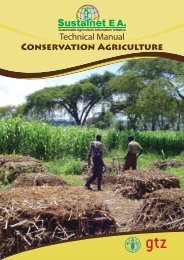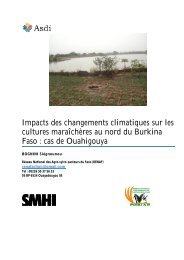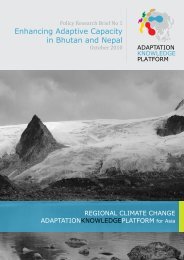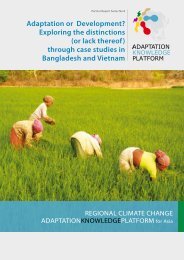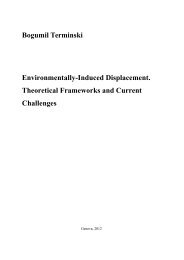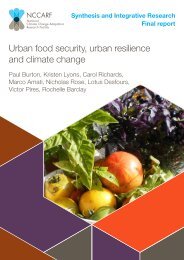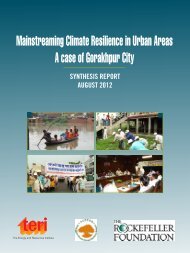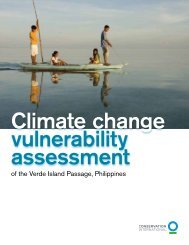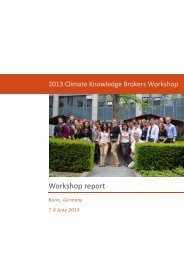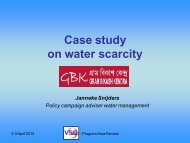Final Technical Report - weADAPT
Final Technical Report - weADAPT
Final Technical Report - weADAPT
- No tags were found...
You also want an ePaper? Increase the reach of your titles
YUMPU automatically turns print PDFs into web optimized ePapers that Google loves.
6 Adaptation<br />
Climate risks are not new to farmers of the lower Mekong. Important climate risks<br />
that are common to farmers of the region include mid-season dry spells that can damage<br />
young plants and late season floods just before harvest that can cause severe crop loss. Rice<br />
farmers’ experiences with measures to manage climate risks, and their perspectives on the<br />
potential for applying the same measures to adapt to climate change, are investigated through<br />
interviews and focus group discussions conducted in selected farming villages in Lao PDR,<br />
Thailand and Vietnam. While the climate hazards are similar for rice farmers across the study<br />
areas, significant differences are found in the measures used to cope with climate risks in the<br />
different villages. These differences in risk management practice arise from local and<br />
national differences in social, cultural, economic, and environmental conditions and policies,<br />
and suggest that effective strategies for adapting to climate change need to be attuned to the<br />
specific context of a place and time.<br />
Farmers of the lower Mekong River basin have been adapting to climate impacts<br />
throughout history and strategies for managing climate risks have evolved through time.<br />
However, it is difficult to separate adaptations made in response to climate pressures from<br />
actions taken in response to other forces emanating from demographic, social, economic,<br />
technological, environmental and other changes. In many cases, farm practices are a response<br />
to multiple risks from a variety of sources. Our study examines two types of actions: (i)<br />
actions that farmers consider to be mainly driven by climate risks and (ii) actions that are<br />
likely driven by other considerations but nevertheless improve the resilience of the farmer<br />
society with respect to climate stresses.<br />
<strong>Final</strong> technical report – AIACC AS07 74


